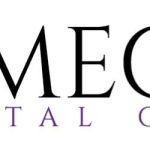The Impact of Diet on Oral Health: How Nutrition Affects Your Smile
- 1. Understanding the Connection Between Diet and Oral Health
- 2. Foods That Contribute to Strong Teeth and Gums
- 3. Harmful Foods and Beverages That Damage Oral Health
- 4. The Role of Vitamins and Minerals in Oral Care
- 5. Real-Life Case Studies: How Diet Impacts Oral Health
- 6. Conclusion: Maintaining Oral Health Through Proper Nutrition
1. Understanding the Connection Between Diet and Oral Health
Oral health goes beyond regular brushing and flossing; the food you eat plays a crucial role in maintaining the health of your teeth and gums. Your diet can significantly affect the strength of your teeth, the condition of your gums, and even your breath. Many people don’t realize that the foods they consume daily can either promote or hinder their oral health, making diet an important factor in the overall maintenance of a healthy smile.
The mouth is the entry point for everything we eat and drink, so it’s no surprise that diet directly influences the condition of your teeth. Eating the right nutrients and avoiding harmful foods can lead to a healthier mouth, preventing issues such as cavities, gum disease, and bad breath. By being mindful of what you eat, you can keep your teeth strong and your gums healthy.
2. Foods That Contribute to Strong Teeth and Gums
Just as a balanced diet is essential for your overall health, certain foods can help support the health of your teeth and gums. Incorporating these foods into your daily routine can provide the nutrients your body needs to keep your mouth in top shape.
Calcium-Rich Foods
Calcium is essential for strong teeth and bones. Foods like milk, cheese, and yogurt are rich in calcium and help to strengthen tooth enamel, which is the outer layer of your teeth. This protection helps prevent decay and cavities. For those who don’t consume dairy, alternatives such as fortified plant-based milks and leafy greens like kale and spinach are great sources of calcium.
Fruits and Vegetables
Fruits and vegetables, especially crunchy ones like apples, carrots, and celery, can help scrub your teeth as you eat. The natural crunchiness of these foods stimulates saliva production, which helps neutralize acids and wash away food particles, reducing the risk of tooth decay. Vitamin C-rich fruits, such as oranges, strawberries, and kiwis, also play a vital role in supporting gum health by preventing inflammation and bleeding.
Leafy Greens and Whole Grains
Leafy greens such as spinach and broccoli are packed with vitamins and minerals that promote oral health. These foods are low in sugar, which helps reduce plaque build-up and the risk of cavities. Whole grains, such as brown rice and whole wheat bread, are also beneficial as they provide fiber, which encourages healthy gum function.
3. Harmful Foods and Beverages That Damage Oral Health
While there are foods that support oral health, there are also many that can be detrimental to your teeth and gums. Being aware of these foods and reducing their intake can help prevent oral health issues such as cavities, gum disease, and enamel erosion.
Sugary Snacks and Drinks
Sugar is one of the leading causes of tooth decay. Bacteria in the mouth feed on sugar, producing acids that erode tooth enamel and lead to cavities. Candy, pastries, and sugary beverages like soda and fruit juices can all contribute to the breakdown of enamel. It’s especially important to limit sugary snacks and drinks, as they can create a breeding ground for harmful bacteria in the mouth.
Acidic Foods and Beverages
Acidic foods, including citrus fruits, tomatoes, and vinegar-based dressings, can erode tooth enamel over time. Although these foods are healthy in moderation, frequent consumption of acidic items can weaken the enamel, making your teeth more susceptible to decay and sensitivity. It’s important to rinse your mouth with water after consuming acidic foods or drinks to help neutralize the acids.
Sticky Foods
Sticky foods, such as caramel, dried fruits, and gummy candies, can cling to your teeth for extended periods. This creates a sticky environment that encourages plaque build-up and tooth decay. Additionally, these foods can be difficult to remove with brushing alone, often requiring dental floss or a professional cleaning to fully remove trapped particles.
4. The Role of Vitamins and Minerals in Oral Care
Vitamins and minerals play a significant role in oral health, especially in maintaining strong teeth and healthy gums. Let’s explore some key vitamins and minerals that are essential for oral care.
Vitamin D
Vitamin D is crucial for the absorption of calcium, which directly impacts the strength and health of your teeth. Without sufficient vitamin D, your body may have difficulty absorbing calcium, leading to weak teeth and bones. Vitamin D can be obtained from sunlight, fortified foods like milk and cereals, and fatty fish such as salmon and mackerel.
Vitamin A
Vitamin A is essential for maintaining the mucous membranes in the mouth and supporting healthy gums. Foods rich in vitamin A include sweet potatoes, carrots, and spinach. A deficiency in vitamin A can result in dry mouth and an increased risk of gum disease.
Zinc and Phosphorus
Zinc is vital for the proper functioning of your immune system and helps protect your gums from infection. Phosphorus, found in protein-rich foods like meat, eggs, and beans, works alongside calcium to strengthen teeth and bones. These minerals are important for ensuring long-term oral health and preventing gum disease.
5. Real-Life Case Studies: How Diet Impacts Oral Health
Let’s take a look at a couple of real-life examples to understand how diet can directly impact oral health.
Case Study 1: Sarah’s Struggle with Cavities
Sarah, a 32-year-old office worker, had always struggled with cavities despite brushing her teeth regularly. After visiting her dentist for advice, she learned that her high sugar intake—mainly from soda and snacks—was contributing to her frequent cavities. After making changes to her diet, reducing sugar, and adding more fruits and vegetables to her meals, Sarah noticed a significant improvement in her oral health. Her dentist reported fewer cavities on her subsequent visits, proving the direct impact of her diet on her oral health.
Case Study 2: John’s Healthy Gums After Changing His Diet
John, a 45-year-old man with a history of gum inflammation, was advised by his dentist to improve his diet by increasing his intake of vitamin-rich foods and reducing acidic snacks. After following these recommendations for several months, John noticed that his gums were no longer inflamed, and his dentist confirmed healthier gum tissue. This case highlights how a diet rich in vitamins and minerals can prevent and even reverse early gum disease.
6. Conclusion: Maintaining Oral Health Through Proper Nutrition
The impact of diet on oral health is undeniable. By making informed choices about the foods and beverages you consume, you can promote healthier teeth, gums, and overall oral hygiene. A balanced diet rich in essential vitamins, minerals, and nutrients supports the strength of your teeth and prevents common oral issues like cavities and gum disease. Remember, oral health is just as much about what you put in your body as it is about what you do with your toothbrush.
If you’re looking for expert dental advice and personalized care, visit Dentistry Toothtruth to learn more about how you can improve your oral health through proper nutrition and regular dental care.







 Axiom Dentistry4.0 (314 review)
Axiom Dentistry4.0 (314 review) Dr. Tom Family & Cosmetic Dentistry4.0 (272 review)
Dr. Tom Family & Cosmetic Dentistry4.0 (272 review) David K Buran, DMD5.0 (107 review)
David K Buran, DMD5.0 (107 review) Valleywise Community Health Center - Avondale4.0 (343 review)
Valleywise Community Health Center - Avondale4.0 (343 review) Higley Park Dental4.0 (563 review)
Higley Park Dental4.0 (563 review) Omega Dental Care4.0 (74 review)
Omega Dental Care4.0 (74 review) The Importance of Oral Health Education During Pregnancy for a Healthy Pregnancy
The Importance of Oral Health Education During Pregnancy for a Healthy Pregnancy Best Tips for Brushing Your Teeth Properly for Healthy Gums: Essential Techniques for Oral Health
Best Tips for Brushing Your Teeth Properly for Healthy Gums: Essential Techniques for Oral Health Why Skipping Dental Checkups Can Lead to Bigger Oral Health Problems
Why Skipping Dental Checkups Can Lead to Bigger Oral Health Problems Advantages of Porcelain Dental Restorations
Advantages of Porcelain Dental Restorations How Can Diabetes Cause Tooth and Gum Problems? Preventing and Managing Oral Health Issues
How Can Diabetes Cause Tooth and Gum Problems? Preventing and Managing Oral Health Issues Healthy Habits for Promoting Good Oral Health and Hygiene: Tips for a Healthy Smile
Healthy Habits for Promoting Good Oral Health and Hygiene: Tips for a Healthy Smile